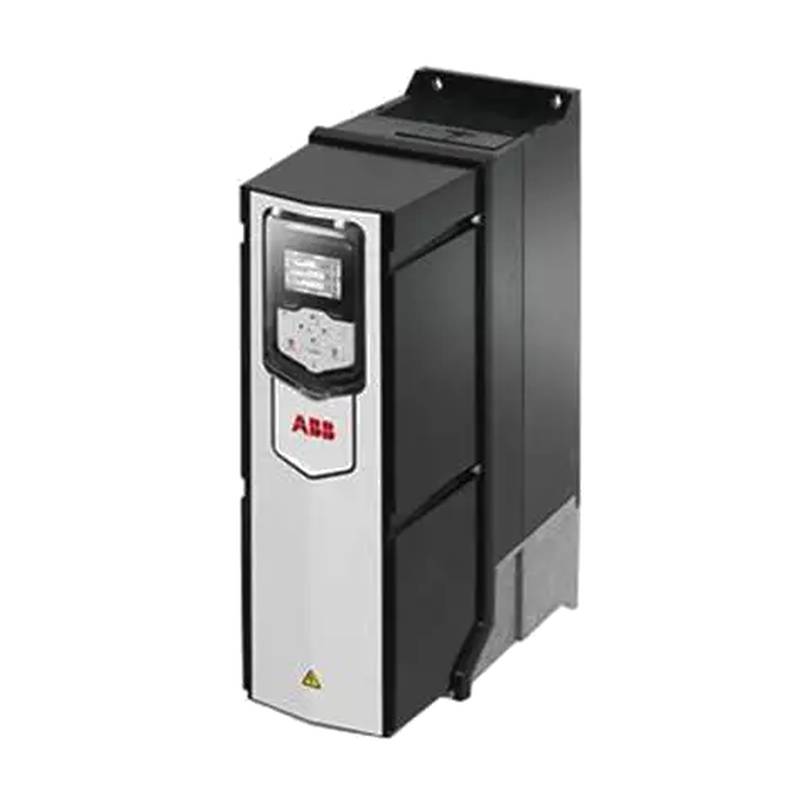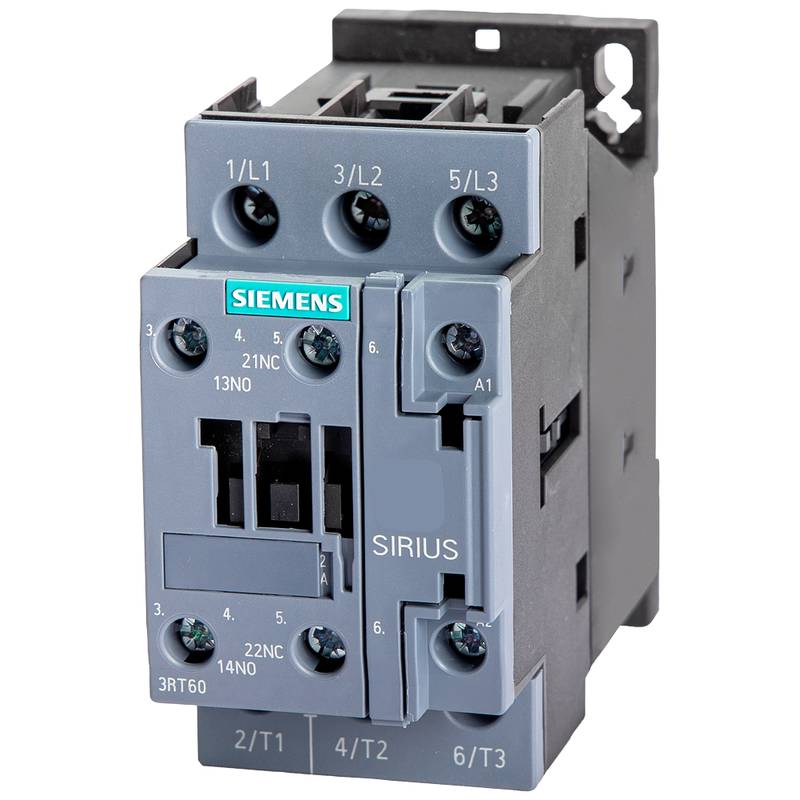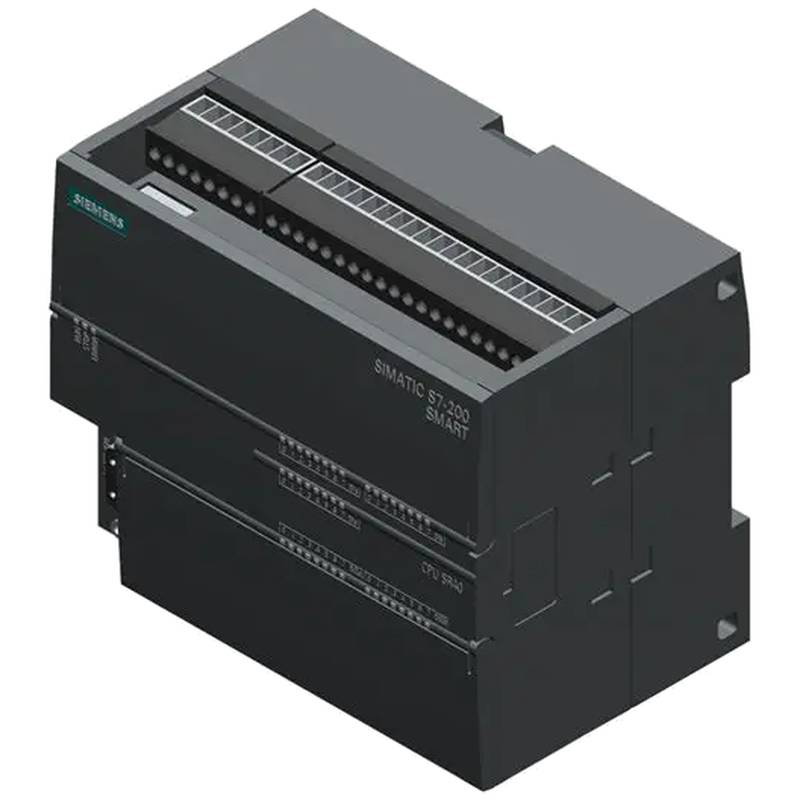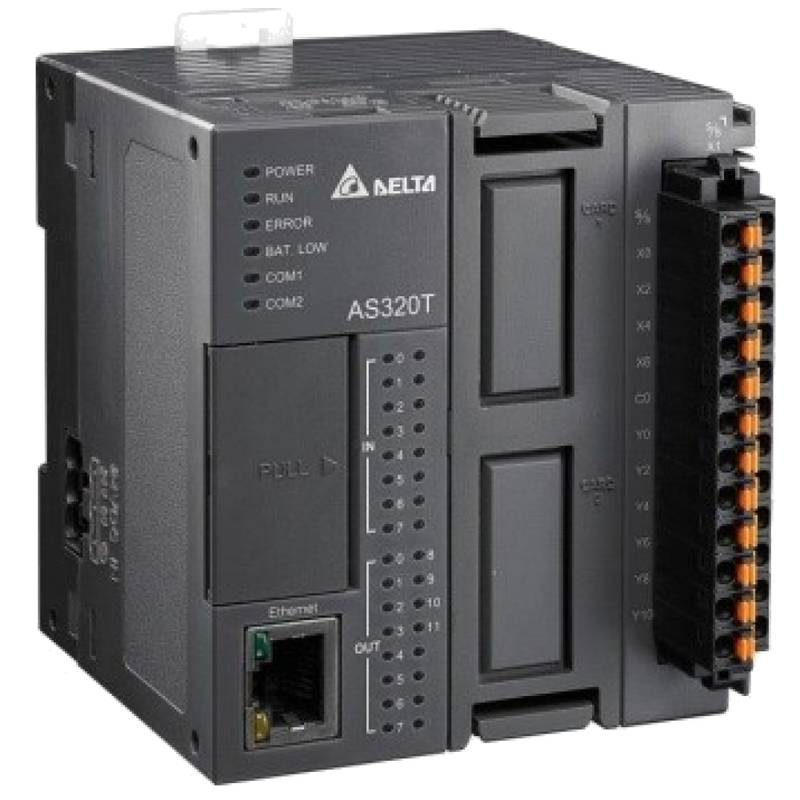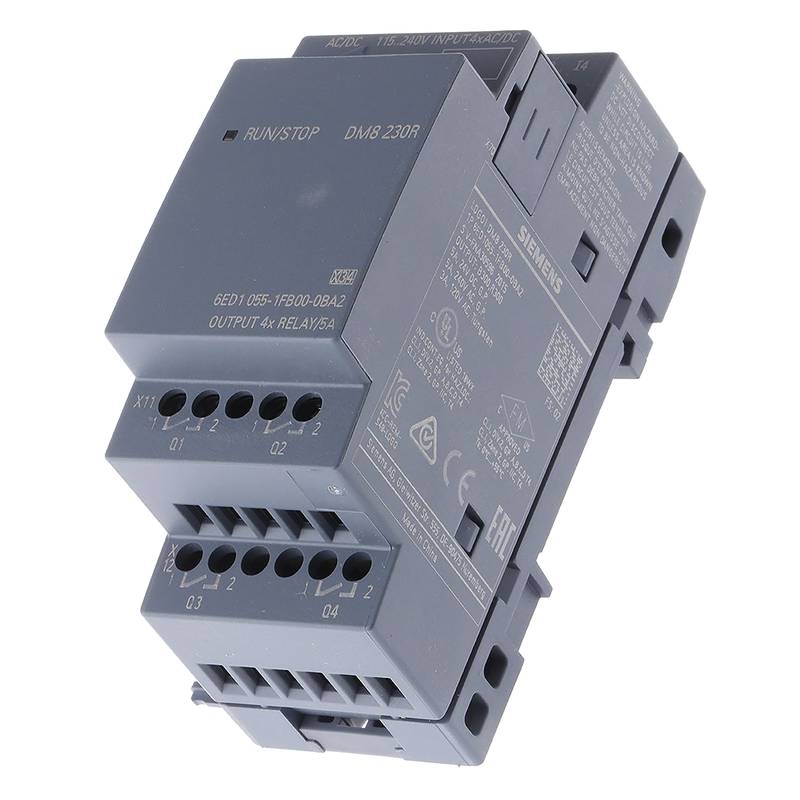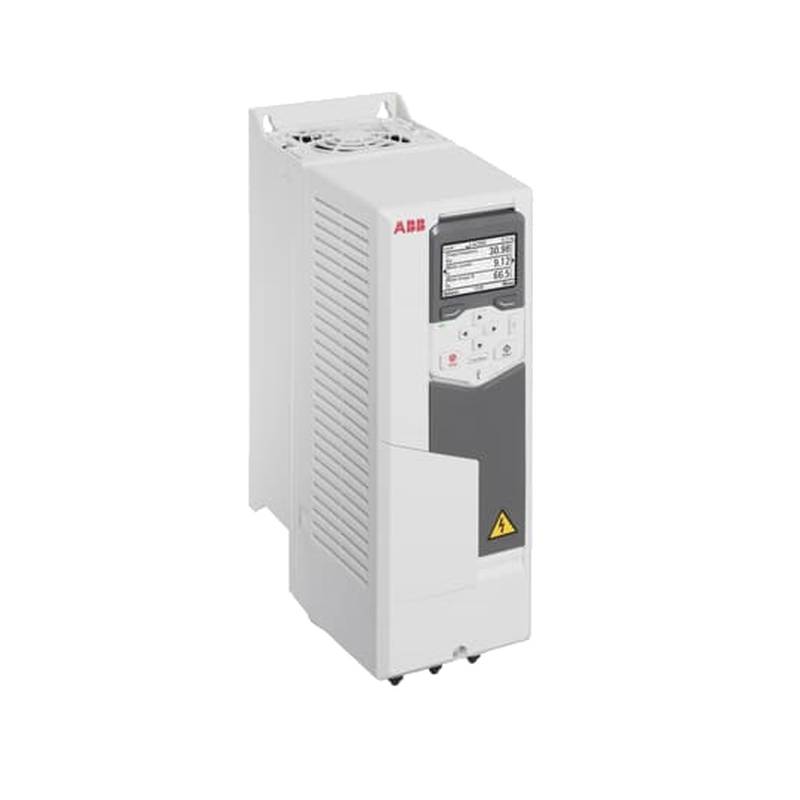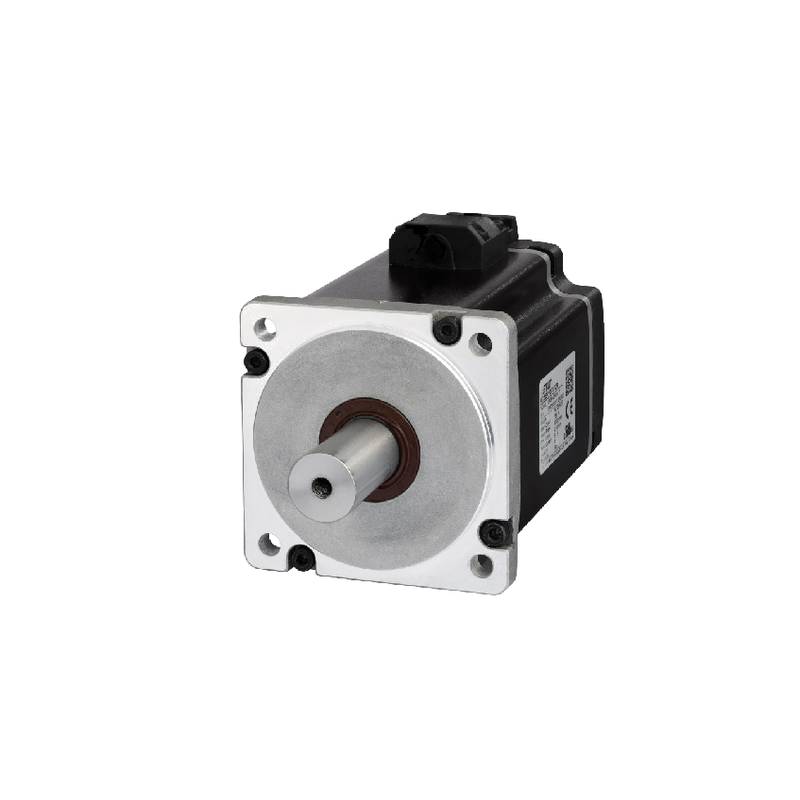
The ABB ACS880-01-156A-5 three-phase frequency converter drive stands as a robust and versatile solution for a wide array of industrial motor control applications. Engineered for efficiency and reliability, this drive offers precise speed and torque control, significantly enhancing process performance and energy savings. Its core advantages lie in its direct control architecture, advanced features, and compact design, making it a preferred choice for demanding environments. Key technical parameters include a rated power of 75 kW (100 HP), an input voltage range of 380-480V, and an output current rating of 156A, supporting continuous operation with high overload capacity. The ACS880-01 series is built for simplicity in integration and operation, featuring a user-friendly interface and a comprehensive protection system.
Product Specifications
| Parameter | Value |
| :------------------- | :------------------------------------ |
| Model | ACS880-01-156A-5 |
| Type | Three-Phase Frequency Converter Drive |
| Rated Power | 75 kW / 100 HP |
| Input Voltage | 380-480V |
| Output Current | 156A |
| Enclosure Class | IP21 (Standard) |
| Mounting | Wall/Cabinet Mount |
| Control Method | DTC (Direct Torque Control) |
| Frequency | 0-500 Hz |
| Dimensions (H x W x D) | Varies by specific sub-model |
Core Features & Market Positioning
The ABB ACS880-01-156A-5 distinguishes itself in the industrial automation market through its proprietary Direct Torque Control (DTC) technology, which provides superior motor performance, dynamic response, and energy efficiency compared to traditional V/f or sensorless vector control methods. This advanced control algorithm enables precise speed and torque accuracy, even under fluctuating load conditions, reducing wear on mechanical components and optimizing production processes. Its robust construction and high overload capability make it exceptionally reliable in harsh industrial environments, a key differentiator for critical applications. The drive's scalability and compatibility with ABB's broader automation ecosystem further solidify its market position as a premium, integrated solution for modern manufacturing.
Key Application Scenarios
This frequency converter is ideally suited for a broad spectrum of industrial applications where precise motor control and energy efficiency are paramount. It excels in pump and fan control, offering significant energy savings by matching motor speed to system demand, thereby reducing unnecessary energy consumption in HVAC, water treatment, and building automation systems. In conveyor systems and material handling, the ACS880-01-156A-5 ensures smooth acceleration and deceleration, preventing product damage and improving throughput. Furthermore, its robust performance makes it a reliable choice for mixers, extruders, crushers, and other process machinery in industries such as food and beverage, plastics, and mining, where consistent torque and speed are critical for product quality and operational stability.
Practical System Integration Guidance
Integrating the ABB ACS880-01-156A-5 into existing industrial systems is streamlined due to its modular design and comprehensive connectivity options. For wiring, ensure proper grounding of both the drive and the motor to mitigate electrical noise and enhance safety. Utilize shielded motor cables to prevent electromagnetic interference, especially in long cable runs. The drive supports various fieldbus protocols (e.g., PROFIBUS, PROFINET, EtherNet/IP) for seamless integration into automation networks; selecting the appropriate communication module is crucial. Commissioning typically involves parameter configuration via the drive's intuitive control panel or ABB’s Drive Composer software. Key parameters to set include motor data, ramp times, and limit settings to match the specific application requirements and motor characteristics.
Operation and Risk Mitigation
Safe and efficient operation of the ABB ACS880-01-156A-5 hinges on adherence to established safety protocols and proper maintenance. Before performing any maintenance or wiring changes, always disconnect power and ensure capacitors are discharged, indicated by the drive's status lights. The drive is equipped with extensive self-diagnostic capabilities and fault codes to alert operators to potential issues. Common fault codes, such as "Overcurrent" (F301) or "Overtemperature" (F202), often indicate mechanical binding, incorrect parameter settings, or inadequate cooling. Addressing these issues promptly by consulting the drive's manual for specific troubleshooting steps, verifying motor connections, and ensuring proper ventilation can prevent system downtime and mitigate risks.
Scalability & Long-Term Value
The ABB ACS880-01-156A-5 offers significant scalability and long-term value, designed to adapt to evolving industrial needs. Its modular hardware and software architecture allows for easy addition of options, such as filters, communication modules, and braking choppers, to enhance performance or meet new application requirements without replacing the entire drive. Compatibility with ABB’s broader Ability™ offering enables seamless integration with Industrial Internet of Things (IIoT) platforms for advanced monitoring, predictive maintenance, and remote diagnostics. This future-proof design ensures that the drive remains a relevant and valuable asset throughout its lifecycle, supporting digital transformation initiatives and maximizing return on investment.
---
Frequently Asked Questions (FAQs)
1. What is the primary function of the ABB ACS880-01-156A-5 frequency converter?
This drive precisely controls the speed and torque of three-phase AC motors. It achieves this by adjusting the frequency and voltage supplied to the motor. This precise control leads to significant energy savings.
The primary function is to provide variable speed control for industrial motors. It optimizes motor performance and reduces energy consumption. This is crucial for many industrial processes.
Its core purpose is to enhance operational efficiency and machine longevity. By managing motor speed dynamically, it prevents mechanical stress and unnecessary wear.
2. How does Direct Torque Control (DTC) in the ACS880-01-156A-5 benefit motor performance?
DTC offers superior dynamic response and accurate torque without motor encoders. This ensures precise speed holding even with load fluctuations. It maximizes process consistency.
The benefit lies in enhanced motor accuracy and responsiveness. DTC provides rapid adjustments to torque and speed changes. This is vital for demanding applications.
DTC technology minimizes motor current ripple and harmonic distortion. This results in smoother operation, reduced noise, and extended motor lifespan.
3. What are the typical installation requirements for the ABB ACS880-01-156A-5?
Install the drive in a clean, dry environment with adequate ventilation. Ensure sufficient clearance around the unit for heat dissipation. Securely mount it to prevent vibration.
Proper electrical grounding is essential for safety and performance. Use shielded cables for motor connections to minimize electromagnetic interference. Follow wiring diagrams meticulously.
Commissioning requires careful parameter configuration. Key settings include motor data, ramp times, and protection limits. ABB's Drive Composer software simplifies this process.
4. Can the ACS880-01-156A-5 be integrated into existing automation systems?
Yes, it supports various fieldbus protocols for seamless integration. Common options include PROFIBUS, PROFINET, and EtherNet/IP. This allows for network communication.
Integration is facilitated by its modular design. Additional communication modules can be easily installed. This ensures compatibility with different control platforms.
The drive is part of ABB's broader automation ecosystem. This enables connectivity to IIoT platforms for advanced monitoring and control.
5. What are common troubleshooting steps for error codes on the ACS880-01-156A-5?
Consult the drive's manual for specific error code meanings. Common issues like overcurrent (F301) may indicate motor or wiring problems. Check connections and load conditions.
For overtemperature faults (F202), verify cooling fan operation and ambient temperature. Ensure ventilation pathways are clear and the drive is not overloaded.
Troubleshooting often involves verifying motor parameters and ensuring correct setup. Resetting the drive after resolving the issue is typically required.
6. What is the power rating of the ABB ACS880-01-156A-5 drive?
The drive has a rated power of 75 kilowatts (kW). This is equivalent to approximately 100 horsepower (HP). It is designed for substantial motor loads.
This power rating makes it suitable for medium to heavy-duty industrial applications. It can handle demanding motor requirements effectively.
The output current rating is 156 amps (A). This is crucial for determining compatibility with specific motor sizes.
7. What voltage range does the ACS880-01-156A-5 operate on?
The drive is designed to operate with a three-phase input voltage ranging from 380 to 480 Volts (V). This is a common industrial voltage level globally.
It provides a stable power supply within this specified range. Ensure your power source meets these requirements for optimal performance.
The output voltage is automatically regulated by the drive. It adjusts to maintain the desired motor speed and torque.
8. How does the ACS880-01-156A-5 contribute to energy efficiency?
By precisely controlling motor speed, it matches output to demand. This eliminates wasted energy from running motors at full speed unnecessarily. Significant energy savings are achieved.
Its advanced control algorithms minimize energy losses. It optimizes power factor and reduces harmonic distortion. This further enhances overall efficiency.
Applications like pumps and fans see substantial reductions in energy consumption. This directly translates to lower operating costs and a reduced environmental footprint.
9. What types of industrial applications is this drive best suited for?
It is ideal for pumps, fans, conveyors, and extruders. Industries such as water treatment, material handling, and plastics production benefit greatly.
Its robust design makes it suitable for harsh environments. Applications requiring precise torque control, like mixers, are also well-suited.
The drive offers versatility for both simple and complex motor control tasks. Its performance can be tailored to specific process needs.
10. How can the ACS880-01-156A-5 be programmed or configured?
Configuration is primarily done via the drive's integrated control panel. User-friendly menu structures guide the setup process.
Alternatively, ABB's Drive Composer PC software offers advanced programming capabilities. This tool allows for parameter backup, monitoring, and diagnostics.
For network integration, programming can also be done remotely through fieldbus communication protocols. This enables centralized control and automation.














